A trip is a land, sea, or air journey from one place to another. Trips can be short (such as a drive from one city to another) or long (such as a cruise around the world).
Traveling on a trip allows you to see new sights and experience different cultures. There are many types of trips, including road, backpacking, hiking, and camping.
Planning a trip can be an overwhelming experience for beginners. With so many things to consider, from choosing the destination to booking accommodations and figuring out how to get there, it’s no surprise that many people feel lost. But have no fear, and we’re here to help.
This post will provide an 8-step guide for planning your perfect trip. We’ll cover everything from deciding the number of days you want to travel to choosing your fellow travelers, finding the right destination, and even packing tips. We’ll also advise you on setting a budget and help you choose the right destination for your trip. So grab a pen and paper and plan your dream getaway.
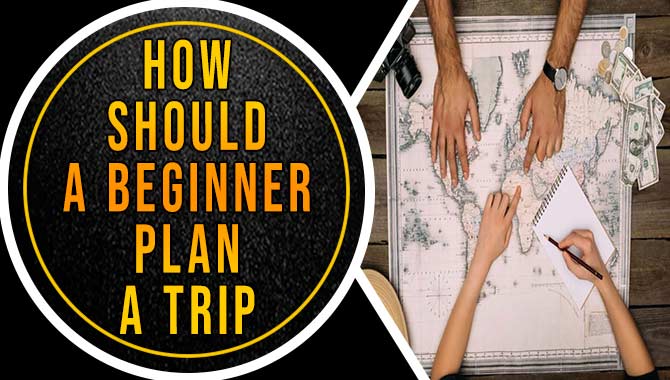
How Should A Beginner Plan A Trip? 8 Tips
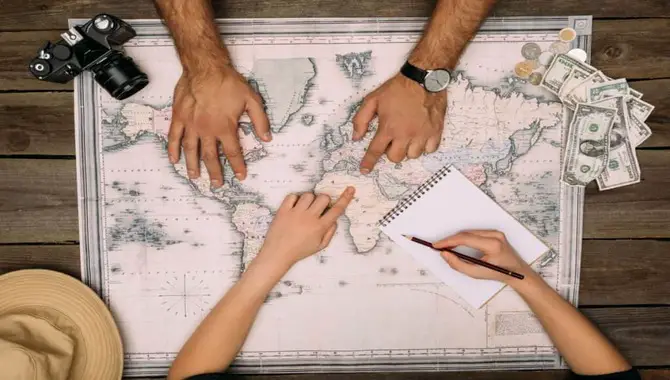
For beginners planning their first trip, there are certain tips to remember. First and foremost, planning and doing thorough research about the destination and the route is essential. This can help you organize your itinerary and ensure that you make the most of your trip. It’s also a good idea to set a budget for your trip and stick to it. Making a personalized trip planner for different scenarios can help to save time and money.
Booking a package that includes flights and accommodation is also a great way to save money and time. When it comes to packing, it’s important to pack light and consider the weather conditions of your destination.
Arriving at the airport in plenty of time to go through security is crucial to ensure you don’t miss your flight. And, of course, don’t forget to have all the necessary documents, such as your passport and visa, handy. Have fun, and don’t worry about the trip’s details. Take lots of pictures and enjoy the amazing experience.
1.Decide On The Available Number Of Days.

When planning a trip as a beginner, it’s important to consider the time you have available to travel. It’s suggested that a two-week long trip is a good minimum to see as much as possible, while 10-14 days are the suggested time for international trips.
It’s also important to consider the travel time to arrive at your destination and the possibility of losing a day due to international travel. Considering these factors, you can make the most of your time and ensure you see everything you want on your trip.
2.Choose Or Decide On Your Fellow Travelers.
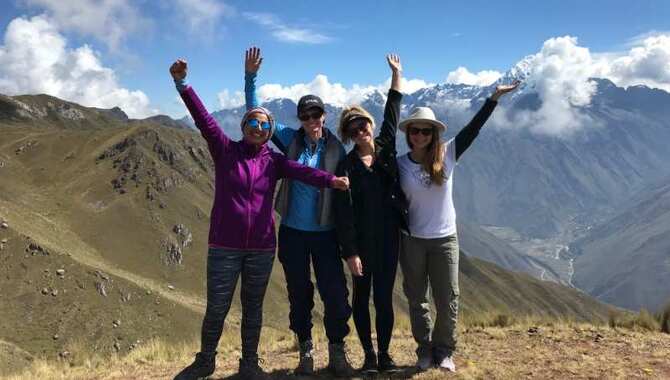
When planning a trip as a beginner, carefully consider who you will be traveling with. Consider your potential companions’ personalities, comfort levels, and travel styles. Decide on the type of trip you are looking for, and ensure everyone is on board with the plan.
It’s also important to discuss each person’s budget and to research destinations and activities that will suit everyone in the group. This will help you choose the best location and activities for your trip. Finally, consider what each person wants to do on the trip and plan accordingly. Considering these factors, you can ensure everyone has a fun travel experience.
3.Select The Destination
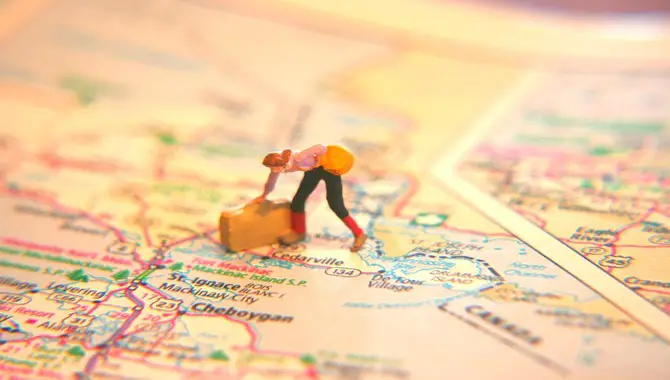
To choose the perfect destination, several tips can be helpful. These tips include researching the area, considering your budget, and consulting with travel experts.
Choosing a destination that aligns with your interests and preferences is important. There are many different destinations, including tourist destinations, nature preserves, and historical sites. Consider what type of experience you are looking for and choose a destination that offers those experiences.
When selecting a destination, also consider practical factors such as distance, transportation options, and safety. By taking the time to carefully select a destination, even a beginner can plan a successful trip.
4.Fixing A Budget

Planning a trip as a beginner can seem overwhelming, but with careful planning, anyone can make it a fun and rewarding experience. Eight tips can help beginners plan a trip on a budget. These tips include selecting the right destination, researching the costs of attractions and activities, and packing wisely. However, the most important aspect of planning a trip on a budget is to fix a budget.
Knowing how much you are willing to spend beforehand can avoid overspending and ensure that your trip is affordable and enjoyable. When fixing a budget, it is important to consider all expenses, including transportation, accommodation, food, and activities. Doing so lets you make sure you have a memorable trip without breaking the bank.
5.Choosing Your Mode Of Travel

When planning a trip as a beginner, it’s important to consider the various modes of transportation available to you. Consider the cost, travel time, and convenience of each option when deciding on your mode of travel. Research the best deals and discounts for the mode of travel you choose, whether by air, train, bus, or car.
It’s also important to consider the environmental impact of each option before deciding. For example, taking a train or bus may be more environmentally friendly than flying. Plan to ensure your travel arrangements are well before the trip to avoid any last-minute stress. By considering these factors when choosing your mode of travel, you can have a successful and enjoyable trip.
6.Booking Accommodation

When planning a trip for the first time, it’s important to consider booking accommodations well in advance. Experts recommend booking at least a month to ensure availability, and booking 40 days in advance can help secure the best deals. Popular websites for booking budget-friendly accommodations such as hostels, bed & breakfasts, and inexpensive hotels include HostelWorld and ReserveAmerica.
When booking accommodations, it’s important to be aware of any booking fees that may apply and pay the security fee in case any changes need to be made later. To avoid any complications, it’s also recommended to keep electronic reservations for easy access and to ensure that important details are not lost. Following these tips can help new travelers feel confident and prepared when booking accommodations for their first trip.
7.Planning The Day-Wise Itinerary
When planning a trip, beginners must have a basic itinerary before making travel arrangements, such as airfare, car rentals, and lodging. To begin, create a personalized trip planner that includes important travel info such as dates, times, and locations of meetings, conventions, and more.
Before deciding on day-wise activities, create a trip budget that accounts for spending, daily expenses, and emergency funds. When planning the day-wise itinerary, it is important to consider factors such as time constraints and unexpected obstacles.
Make sure also to follow travel etiquette when visiting different places to make your trip more enjoyable. By following these tips, beginners can plan a successful and enjoyable trip that meets their travel goals and budget.
8.Be Smart While Packing.
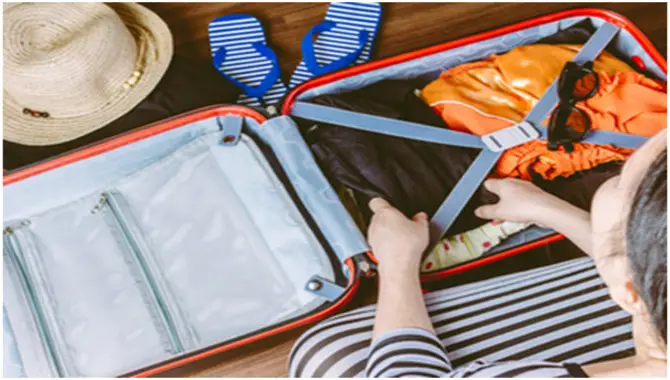
When planning a trip as a beginner, there are several things to remember. One important tip is to pack smartly. For extended trips, pack only the essentials to avoid lugging around extra luggage. Additionally, pack for the season you are traveling in to avoid spending extra money on items you could have brought.
Another important tip is to start planning your trip early. This will allow you to get the best deals on flights and accommodations. You should also ensure that you have all the necessary forms of transportation and payment before you leave to ensure a safe and cost-effective journey.
Finally, if you have pets, children, or a house, it’s important to prearrange care at least two weeks before your trip. This will take the stress out of traveling and ensure that everything at home is handled while you’re away. With these tips in mind, planning a trip as a beginner can be a fun and exciting experience.
How Much Money Should You Budget For Your Trip?
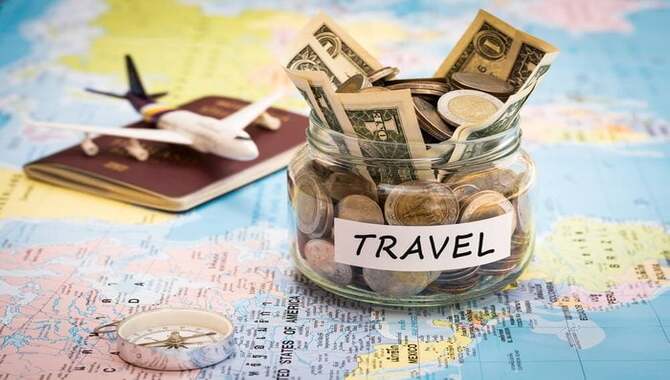
Planning a trip can be overwhelming, especially for a beginner. Setting a budget is one of the most important trip-planning steps. A budget should include all travel expenses such as travel tickets, accommodation, activities and excursions, food and drinks, visas, and insurance.
It is necessary to account for all expenses, including preparation expenses such as equipment, vaccinations, visas, flight tickets, etc. When on the trip, actual vacation expenses, such as accommodation, food, activities, and other possible costs, should also be considered. It is advisable to set funds aside for emergency expenses or unforeseen situations.
Sites like Wander can assist in deciding on a destination based on the set budget. A planned approach helps make a trip more enjoyable and helps keep costs under control. A well-planned trip lets the traveler experience much more than an unplanned one.
How To Choose The Right Destination For Your Trip

Choosing the right destination is the first step in planning a trip as a beginner. Start by deciding what you want to do or see if you have a bucket list or if a location is famous for a particular activity or scenic location. Consider the weather and potential deals during the planned travel dates. If you are stuck deciding, consider randomly picking a destination out of a hat or researching online.
Also, par it with figuring out how you travel, whether by car, plane, train, or other options. Plan international trips by applying for a passport, leaving ample processing time. Start the planning process with external factors, such as viral social media posts, movies, or stories of friends’ trips. Choosing a destination ensures you have a clear idea of where you are going and can move on to planning accordingly.
Conclusion
Planning your first trip can be daunting; there’s much to consider before embarking on your adventure. It can quickly become overwhelming, from deciding the destination to booking accommodation and creating an itinerary.
However, with our 8-step beginner’s guide to planning a trip, you can plan an affordable, fun, and memorable trip to your dream destination. Choosing the right destination, planning a day-wise itinerary, and being smart with packing can make a significant difference. If you’re still unsure where to start, check out our blog on choosing the right destination. Start planning today and make your dream trip a reality.
Frequently Asked Questions
In What Order Should I Plan A Trip?
When planning a trip, it is generally a good idea to start by determining your destination and the dates you will be traveling. From there, decide on your budget and any accommodations or transportation needs you may have. Once you have a basic itinerary, start researching and booking activities, tours, and restaurants in the area.
How Soon Should You Start Planning A Trip?
The ideal time to start planning a trip depends on the destination, duration, and purpose. Generally, it’s a good idea to start planning at least several weeks, particularly for international trips requiring visas or vaccinations.
Should I Buy Travel Insurance Before My Trip?
Yes, it is generally recommended to purchase travel insurance before your trip. Travel insurance can protect you from trip cancellations, lost or delayed luggage, medical emergencies, and other unforeseen events.
What’s The Best Way To Pack For My Trip?
The best way to pack for a trip is to start with an organized packing list. Divide items into categories such as clothing, toiletries, and electronics. Roll or fold clothes to save space, and use packing cubes to keep everything organized.
Should I Bring My Luggage Or Rent One From The Airport Or Train Station?
The decision to bring your luggage or rent one from the airport or train station depends on your preferences and needs. If you have reliable and sturdy luggage of your own, it may be more convenient and cost-effective to bring it along.

